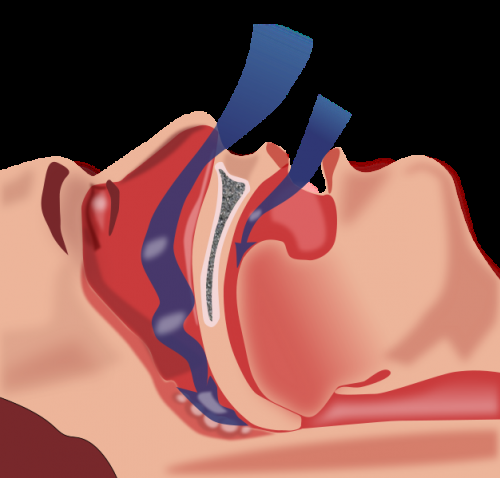Intense awakenings during the night may contribute to sleep apnoea

Researchers from Neuroscience Research Australia have identified a potential new cause for obstructive sleep apnoea. Specifically, how 'intensely' a person wakes during the night.
Obstructive sleep apnoea (OSA) is a common breathing disorder that affects nearly one million Australians who experience closure or narrowing of the upper airway during sleep. When untreated, OSA is associated with major adverse health outcomes, such as cardiovascular disease and neurocognitive impairment.
These interruptions to breathing are often associated with brief awakenings (cortical arousals), which disrupt sleep continuity. Historically, arousals have been assumed to be vitally important in restoring airflow at the end of obstructed breathing events. However, it is now believed that different levels or intensity of arousal may have quite different effects on sleep and breathing.
A recent study led by Dr Jason Amatoury, in collaboration with investigators at the University of Manitoba (Canada) and Harvard University (USA), aimed to determine if arousal intensity was related to the strength of the preceding respiratory event that caused the awakening. The study found that the two were independent of each other, suggesting that the intensity of arousals may be an inherited characteristic.
The study also revealed that more intense arousals caused larger breathing responses to awakening, and had different effects on the muscles around the throat that act to stablise and open the airway.
It is thought that higher arousal intensity contributes to OSA by destabilising breathing control and contributing to upper airway collapse upon return to sleep. "Higher arousal intensity can cause increased hyperventilation, resulting in excessive reductions in carbon dioxide levels, which can then lead to hypoventilation (breathing at an abnormally slow rate) and disturbance upon return to sleep," says Dr Amatoury.
"We know that repetitive breathing disruptions can not only severely affect sleep quality and lead to excessive daytime sleepiness, it can also place stress on the heart and cardiovascular system, leading to the risk of high blood pressure, stroke or sudden cardiovascular death. So it's important we understand more about arousals in sleep apnoea so we can develop more targeted and effective therapies to treat patients in whom arousals may be directly contributing to their OSA."
Future studies will focus on what this means for people for whom the condition is inherited and whether OSA will be easier or harder to treat in this cohort. The current findings raise the possibility that this may be a target for new therapies in these people.
More information: Arousal Intensity is a Distinct Pathophysiological Trait in Obstructive Sleep Apnea. Sleep. 2016 Oct 2 www.ncbi.nlm.nih.gov/pubmed/27784404



















